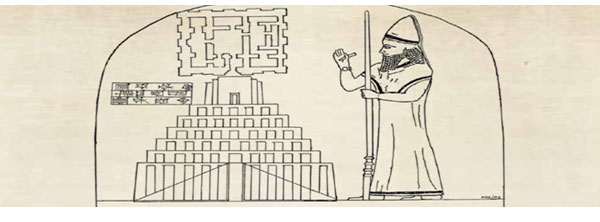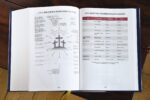The Tower of Babel

Then they said, “Come, let us build ourselves a city, with a tower that reaches to the heavens, so that we may make a name for ourselves; otherwise we will be scattered over the face of the whole earth.”
—Genesis 11:4, NIV
Genesis 11:4 comes to life as we understand the deeper cultural contexts for the original readers and hearers of the Bible.
A city, with a tower. One single architectural feature dominated the landscape of early Mesopotamian cities: towers known as ziggurats. In the earliest stage of urbanization, the city was not designed for the private sector. People did not live in the city. Instead, it was comprised of the public buildings, such as administrative buildings, and granaries, which were mostly connected with the temple. Consequently, the city was, in effect, a temple complex.
Reaches to the heavens. Throughout Mesopotamian literature, almost every occurrence of the expression describing a building “with its head in the heavens” refers to a temple with a ziggurat. It is this language, along with the indication that God “came down” (verse 5), that gives textual confirmation that the tower is a ziggurat. This would have been transparent to the ancient reader. In keeping with the negative results of the project here, the reader of Genesis will find a few of the omens in the Shumma Alu series remarkable: “If a city lifts its head to the midst of heaven, that city will be abandoned” (1.15), and “If a city rises like a mountain peak to the midst of heaven, that city will be turned to a ruin” (1.16). Yet Mesopotamian cities were regularly built on high ground, with the temple on the highest ground. The wording of these omens understood in the context of the omen series is essentially about exceeding natural boundaries to the effect that a city can overreach itself to rival sacred structures and thus bring about its own destruction.
Make a name. The ancient world placed immense value on the sense of continuity from one generation to another. In some cultures a person’s continued comfort in the afterlife was dependent on care from descendants in the land of the living. The details often involved memorial meals and various regular mortuary rites, but more important for this passage, they provided opportunity for the name of the deceased to be spoken. There is continued life and vitality as long as one is remembered. The building of monuments could also contribute to the desirable end result, as could achievements and adventures of various sorts. The important point here is that the desire to make a name in the ancient world is common to all. The more people who remember one’s name, the more secure is one’s existence in the afterlife. While there is nothing inherently evil or sinful in the desire to be remembered (e.g., God promises to “make your name great” for Abraham in Genesis 12:2 and David in 2 Samuel 7:9), this desire may become obsessive or motivate evil or sinful behavior.
Scattered. The fear of scattering is directly related (both syntactically and conceptually) to the previously stated desire to make a name. Remembrance takes place in the vicinity of the burial ground. Descendants who move away (as Abraham does in chapter 12) cut the ties of continuity between the past and the present. Though some have considered this desire not to scatter as disobedience to the blessing in 1:28, it must be recognized that the blessing does not relate to scattering, only to filling — far different issues. God scattered them, not because it was wrong for them to be together, but because their desire to retain continuity was causing them to launch flawed strategies.
Drawn from the NIV Cultural Backgrounds Study Bible.
What “towers” do people build to call attention to their own greatness today? Post a comment below!


















